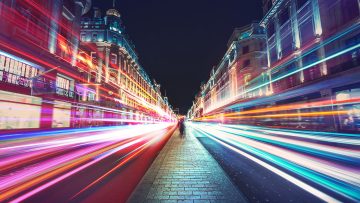- In the US, 1.35 million Americans on average are now receiving a coronavirus vaccine every day.
- COVID-19 vaccination cards help people keep up with the shots they received and when they’re due to receive a follow-up vaccination.
- The Better Business Bureau, meanwhile, is warning people not to share the COVID vaccination card they receive on social media channels. Doing so could inadvertently reveal the vaccine recipient’s personal information.
Since the massive coronavirus vaccine campaign in the US began in December, about 31.8 million shots have been administered here, reflecting about 1.35 million COVID-19 vaccine doses administered each day on average.
That’s good news, according to Bloomberg’s vaccine tracker. It also means the US is on track to reach President Biden’s goal of 1.5 million coronavirus vaccine shots administered per day — an increase over his original goal, which had been a target of 1 million COVID shots per day. All of this, of course, should be celebrated, since a major stepping up of the pace of the US vaccination campaign has been what’s needed to reverse the still-staggeringly high COVID trends in the US. To date, more than 26.1 million coronavirus cases have been reported here, along with more than 441,000 coronavirus-related deaths, according to the latest data from Johns Hopkins University.
Regarding the myriad coronavirus vaccines that have come to fruition, there’s generally fantastic news associated with each. The New York Times raved on Monday, for example, that the five major COVID vaccines approved so far have “drastically reduced” COVID-related hospitalizations, as well as eliminating deaths from the virus according to public results associated with the new shots. So amid all that great news, it’s understandable that people might be excited to share the COVID vaccination card they receive after getting their shot, similar to all those “I voted” stickers that you see flooding your social media feeds on Election Day.
But please stop doing that, warns the Better Business Bureau.
The reasons have to do with privacy, at least partly. “Unfortunately, your card has your full name and birthday on it, as well as information about where you got your vaccine,” the BBB’s newly released warning explains. “If your social media privacy settings aren’t set high, you may be giving valuable information away for anyone to use.”
The bureau’s warning also reflects a fear that scammers could use official COVID-19 vaccination cards shared to social media to create knock-off versions of the cards.
If your vaccination site provides you with something like a sticker containing a simple message along the lines of “I just received my COVID-19 vaccination,” the bureau recommends sharing that on social media instead of an image of the vaccination card. Also, it’s always worth taking a moment and making sure your privacy settings across the various social networks like Twitter and Facebook are set the way you’d like them to be.








